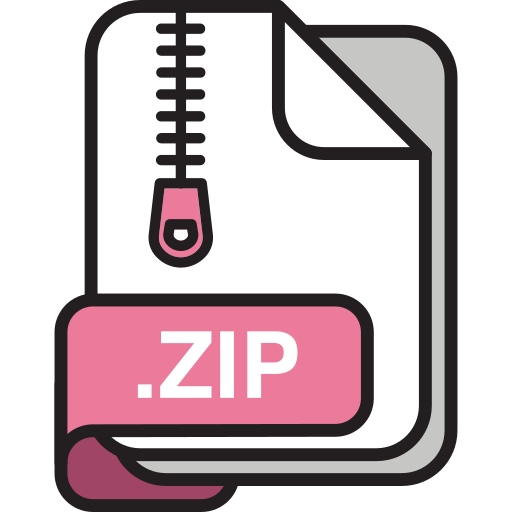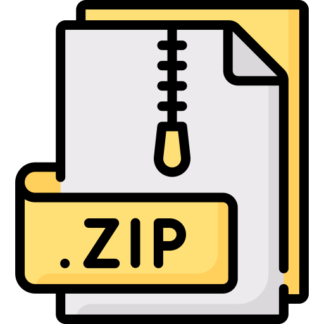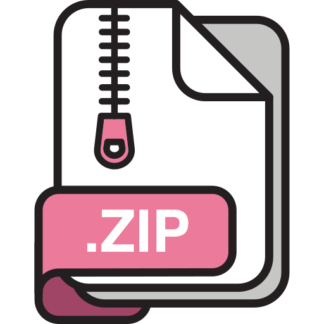Description
CS 2310 Assignment Three
Q1. Complete the class definition (10%)
Based on the declaration for class Complex as following, write a program to:
1. Complete the definition of the member functions declared;
2. Call these functions in main function. Follow the same format of inputs and outputs with examples. Class Complex { Private: double real; double imag; Public: // initialize the real and imaginary parts by a and b respectively void Initialize(double a, double b); // print the complex number on the screen void show(); // compute and return the power of the current complex number Complex power(); // compute and return the multiplication of two complex numbers Complex multip(Complex A); };
Example: Enter two complex numbers: 1 -1 3 4 The complex numbers you entered are: 1 – 1i 3 + 4i The power of 1 – 1i is: 0 – 2i The power of 3 + 4i is: -7 + 24i The result of (1 – 1i) * (3 + 4i) is: 7 + 1i Q2. Pointer and Dynamic Array (30%) A dice has 6 faces, each with one unique value: 1, 2, 3, 4, 5, and 6. The face value of a dice means the value showing upward.
Write a program to finish tasks as the followings:
1. Find the number of occurrences of the sum of face values of the two dices.
2. On top of 1, sort the number of occurrences in descending order.
3. On top of 2, rather than showing the exact occurrence count of each sum of face values, output the letters A,B,C, … so that A represents the highest occurrence count, B represents the 2nd highest occurrence count, and so on.
4. The outputs should have the following format: 1. The number of occurrences: 1 occurrence(s) of the sum 2 2 occurrence(s) of the sum 3 3 occurrence(s) of the sum 4 4 occurrence(s) of the sum 5 5 occurrence(s) of the sum 6 6 occurrence(s) of the sum 7 5 occurrence(s) of the sum 8 4 occurrence(s) of the sum 9 3 occurrence(s) of the sum 10 2 occurrence(s) of the sum 11 1 occurrence(s) of the sum 12 2.
The sorted number of occurrences: 6 occurrence(s) of the sum 7 5 occurrence(s) of the sum 6 5 occurrence(s) of the sum 8 4 occurrence(s) of the sum 5 4 occurrence(s) of the sum 9 3 occurrence(s) of the sum 4 3 occurrence(s) of the sum 10 2 occurrence(s) of the sum 3 2 occurrence(s) of the sum 11 1 occurrence(s) of the sum 2 1 occurrence(s) of the sum 12 3.
The sorted number of occurrences in letters: F occurrence(s) of the sum 2 E occurrence(s) of the sum 3 D occurrence(s) of the sum 4 C occurrence(s) of the sum 5 B occurrence(s) of the sum 6 A occurrence(s) of the sum 7 B occurrence(s) of the sum 8 C occurrence(s) of the sum 9 D occurrence(s) of the sum 10 E occurrence(s) of the sum 11 F occurrence(s) of the sum 12
Requirements:
1. Every array in your program must be a dynamic array.
2. Instead of using the ‘new’ operator (e.g., int* faces = new int[12];), there is no any use of any array construct in your program. Hint: use pointers!
3. Usage of arrays like the followings are not allowed in your program: sum[i] sorted[i][j]
4. Every dynamic array must be deleted before the program terminates. Hint: when deleting a 1D array, use delete: delete[] sum; when deleting a 2D array, you need to delete all the rows of the 2D array first, and then the 2D array.
Note:
1. This question will be divided into 3 sub-questions and one test case for each subquestion in PASS system. Your outputs should be exactly the same as shown above.
2. We will check your source code to see if your program meets the requirements. If not, you will not be graded as correctness even if your outputs is correct.
Q3. Library borrowing system (30%)
In this question, you are required to design a simple library borrowing system and finish tasks as the followings:
1. Accept the information about the books, including book name, data, state and subject.
2. Assign the books into different subject categories according to the input. For simplicity, assume: There are only three subject categories in this small library. Each book only can be assigned into one subject.
3. List all the books and their information under each subject category respectively. The books listed in each subject should be sorted by date (newest to oldest).
4. Accept the name of the book that the reader want to borrow. If the book is unavailable, print a message and ask the reader to input again.
Requirements:
1. The concept of Library is implemented as a C++ class. o Each Library object owns three Subject objects, named Art, Science, and History.
Hint: the use of an array to keep three Subject objects will make your program significantly more complex than keeping them as three separate variables.
2. The concept of Subject is implemented as a C++ class. o Each Subject contains its own list of Books and the count of Books. Hint: here you can create an object array to store all the Books.
3. The concept of Book is implemented as a C++ class. o Each Book object has its own Name (csting), Date (int) and State (bool, 1: available, 0: not available).
4. All data members of each object can only be accessed by the object itself. More description about the above three classes Ideas on the data members of the Subject class. [The class may contain other data members] count The number of Books list An array of Books Ideas on the data members of the Library class.
[The class may contain other data members] Name The name of this Library object Art The first Subject owned by the Library Science The second Subject owned by the Library History The third Subject owned by the Library Ideas on the data members of the Book class
[The class may contain other data members] Name The name of this book object Date The date of the book object State The state of the book object Hint: You can assume that: 1) the number of Booksis at least 1 and at most 100; 2) any cstring consists of at most 10 characters; 3) all user inputs are valid.
Example:
Input the number of books: 9 Input the information of books (name, date, state, subject): book1 1990 0 Art book2 1995 1 History book3 1992 1 History book4 2007 0 Science book5 2017 1 Art book6 1997 1 History book7 2001 0 Science book8 2014 1 Science book9 2000 1 Art Books in the library: Art: book1 1990 0 book9 2000 1 book5 2017 1 Science: book7 2001 0 book4 2007 0 book8 2014 1 History: book3 1992 1 book2 1995 1 book6 1997 1 Input the name of the book you want to borrow: book1 Sorry, the book is not available.
Try again: book3 Succeed! Q4. Cstring (30%) C++ has a set of functions implementing operations on strings inherited from the C language. These functions support various operations, such as copying, concatenation, searching, etc. Write a program to implement some of these operations using your own code. Requirements:
Declare your own functions as the followings:
1. char * mystrncat ( char * destination, const char * source, int num ); Append the first num characters of source to destination. If the length of the string in source is less than num, only the content up to the terminating null-character is copied.
Assume that the destination is large enough to contain the concatenated resulting string.
2. char * mystrtok ( char * str , const char * delimiters ); A sequence of calls to this function split str into tokens, which are sequences of contiguous characters separated by any of the characters that are part of delimiters.
For more details about this function, you can refer to the website below:
http://www.cplusplus.com/reference/cstring/strtok/ Hint: you might use local static variable to save the remainder of the original string after the delimiter.
3. char * mystrcmp ( const char * str1, const char * str2, char * result); Compares the string str1 to the string str2. result is separated into two parts: 1) num1 denotes the number of characters that contained in both strings and located at the same position; 2) num2 denotes the number of characters contained in both strings but located at different positions. The format of result is: A num1 B num2 For example, if str1 = “c45d”, str2 = “s45c”, then result = “A2B1”.
Assume that str1 and str2 contain the same number of characters, and each string has all unique characters. Call your own functions in main function. Follow the same format of inputs and outputs with examples.
Examples:
1. Input the destination: cs2310 computer Input the source: programming Input the number of characters to be appended: 20 The concatenated resulting string is: cs2310 computerprogramming 2. Input a sentence: cs2310 computer programming 2017/18 Input the delimiters: / The tokens are: cs2310 computer programming 2017 18 3. Input the first string: 2da53gf4 Input the second string: 2f4rxgdl The result of comparison is: A2B3




